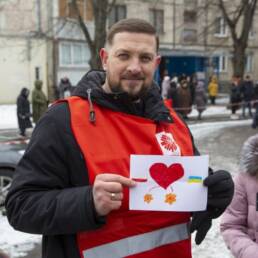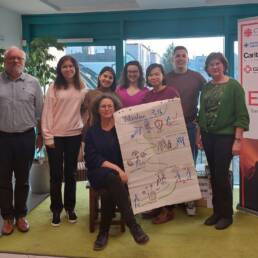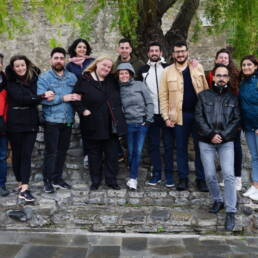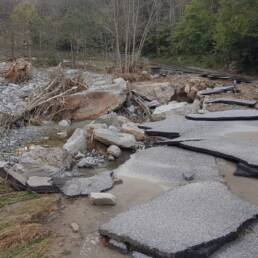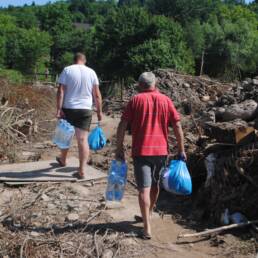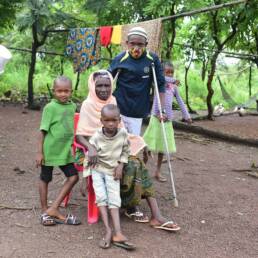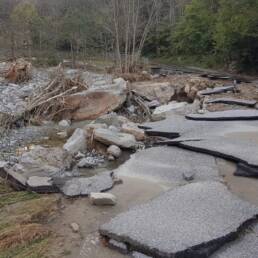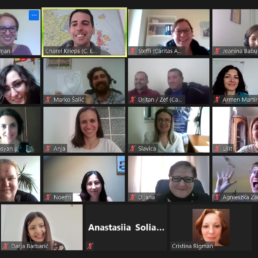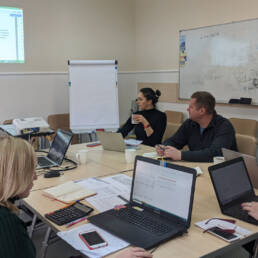Author
Flaminia Tumino
Africa Desk Program Officer
Caritas Italy
The triggering event of the current crisis in the Kasaï region dates back to 8 August 2016, when the security forces killed the local leader Kamuina Nsapu in Tshimbulu, a town of the Kasaï-Central.
This act caused the population to attack several local police posts and other public places. Disorder quickly expanded to other districts in the region, particularly in Eastern Kasaï, Lomani and Sankuru. The central government sent a great deal of army reinforcements (FARDC – Forces Armées de République Démocratique du Congo) to the region to repress the uprising. The army committed retaliation acts also against the civil population, creating a generalised situation of insecurity. The rebel militias, on the other side, behaved in violation of human rights, making extensive use of children and minors as soldiers. In addition, this crisis of a purely political nature intertwined with old inter-ethnic conflicts, leading to further clashes between the Luba, Tuhokue and Penda ethnicities. It is estimated that about 1.4 million people are currently displaced. Part of the population abandoned their villages, but remained within the region, part headed towards the border with Angola.
According to information gathered by Caritas Luebo, the region is still highly unstable. To date, the presence of government forces across the region is felt as very heavy and intrusive by the local population and is part of the reason why the displaced people are reluctant to return to their homes. In fact, they fear to be arrested under the pretext of being accused of ties to some rebel militia; in some remote villages episodes of looting, attackes on private homes and violence, especially against women and girls, are still reported. Moreover, people are also afraid to go through the many blockades along the streets that connect the main cities and villages, as the payment of a bribe is required to continue the journey.
Caritas Congo launched an Emergency Appeal later in August 2017 to gather funds to bring relief to the affected population in the city of Tshikapa. There are more than 72.000 displaced persons in Tshikapa, mostly from neighboring centers where hostilities are still ongoing. Clashes between militia and FARDC have been going on for more than a year already, preventing the population from being able to farm or raise cattle and thus threatening food security in the region. The city is safe today, but the access routes are still insecure and do not allow food items nor other goods needed for restoring agricultural activities to make it to the city and supply local markets. This situation has caused a 30% increase in food prices, as well as a general scarcity of such goods. In this context of strong instability, Caritas Congo planned a four-month intervention programme with a total budget of EUR 386.405, aiming at reaching around 1.500 households for a total of 9.000 beneficiaries. The interventions consist of food distribution to the displaced and support to families through the improvement of shelters and sanitary conditions, with special attention to women’s health. The recipients will be vulnerable displaced and returning households, as well as hosting families in Tshikapa and in particular in four locations: Lunkamba, Lunyanya, Masangu Anayi, and Ngandu-A-Mbulu.
Caritas Italy’s support to Caritas Congo interventions dates back to the ’90s. The two Caritas have a long-standing tradition of collaboration to support Congolese people on the various crisis that have marked the history of the Democratic Republic of Congo. Caritas Italy’s assistance to emergencies in which Caritas Congo brought solidarity to the civil population affected also includes response programmes in North Kivu and interventions in support of South-Sudanese refugees and Burundian refugees. Moreover, Caritas Italy has been supporting Caritas Congo’s efforts at local scale through micro-projects.
Even though Pope Francis mentioned the atrocities happening in the Kasaï region in February 2017 and called for an end to the hostilities following several appeals by the Republic’s bishops, the attention of the international community is still very low. The same goes for the Emergency Appeal launched by Caritas Congo, which up to now remains underfunded. The contribution of Caritas Italy is a sign of proximity to Caritas Congo and the population hit by the conflict in a context in which the international community and the public opinion seem to have forgotten about this crisis.
By Flaminia Tumino, Africa Desk Program Officer at Caritas Italy


